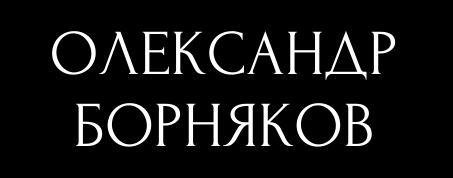Imagine a world in which there is no theft. No tax evasion. No corruption. In which financial technology has reached a level of intelligence and transparency where these things are simply not possible. It sounds like a sci-fi film, doesn’t it? And yes, for now, this dream is out of reach — but it might not always be that way, thanks to the power of blockchain.
Let’s picture for a moment a society where everything is run on blockchain.
Your government has done away with conventional money and replaced this with a nationally owned and managed digital currency, perhaps even with digital scarcity built in to prevent against inflation. What’s more, this allows them to tag every “coin” created with a unique identifier and track its journey through every single transaction it makes. Forever.
Commercial banks are now largely pointless: you don’t need them to store your cash, because there isn’t any. Instead, you hold a digital currency account with the government, like everyone else. Your money is readily available 24/7 and transfers are immediate, eliminating unnecessary fees and delays.
You obviously don’t need a physical wallet, because you pay for everything with a quick and easy transfer of funds from one unique, identifying “key” to another. To pay in a ‘real world’ shop / cafe / taxi wherever, you just scan a code with your smartphone, or for the super security conscious, you ‘sign’ the transaction by letting them scan your retina or fingerprint.
Because the government can oversee every penny you earn and every purchase you make, they also know precisely how much you owe them. Every payment received and every item you buy has its own tax code, automatically applied to the transaction so that the right amount of money is redirected to government coffers in the blink of an eye.
In fact, everything in your life is traceable now. And because that unique key of yours is linked to your social security number, you can vote, access education and healthcare, apply for jobs, pay fines and receive any state help you’re entitled to without endless bureaucracy and paperwork, or the possibility of ‘falling through the cracks’ because your file has gone astray.
What’s more, you trust your politicians because you have a clear, public record of every dollar they’ve received. You know where their funds are coming from and information about who receives government grants and wins government contracts is all publicly available, too, thanks to incorporation of Ethereum-style blockchain for smart contracts. This architecture is applied to bring contracts out into the open, so that they can be negotiated, verified and enforced publicly, in a way that stops them being messed around with. As a result, corruption and nepotism (not to mention crippling legal fees) have been all-but stamped out.
Basically, it’s become a two-way street: the government can make sure you’re not up to no good, but you can do the same to them. What’s more, you can pile pressure onto all government-owned agencies and their vendors to work more efficiently and spend your tax dollars wisely. After all, if they’ve drastically overpaid for a service, have allowed some dodgy reimbursement receipts to go through, or are double-spending through multiple departments, a sharp-eyed critic will always be able to wade through the blockchain records and figure it out.
With all those budgets getting streamlined all the time, there’s more money than ever to spend on things like education, health, social programs, infrastructure and the like.
Think this is just the stuff of sci-fi? Think again. Little by little, governments all over the world have been finding ways to incorporate blockchain-backed technologies to shape their citizens’ relationship with the state.
Consider Estonia, which introduced the KSI system, using blockchain technology to shield official records from cyber theft, hacking or manipulation — while at the same time protecting people’s privacy. In Sweden and China, governments are already experimenting with state-owned digital currencies. And now, in perhaps the biggest and most ambitious project of its kind, the government of Venezuela has released presale guides for its brand new petro-cryptocurrency, a blockchain-based digital currency that’s tied to the country’s oil wealth.
If these government-owned cryptocurrencies succeed, it could pave the way for nations to bring together all these strands of blockchain-backed technologies, cutting out middlemen, streamlining government agencies and activities — and making it near-impossible for either government officials or ordinary people to get away with breaking the rules.
A future that’s characterized by transparency, traceability and cohesion.








Оставить комментарий
You must be logged in to post a comment.